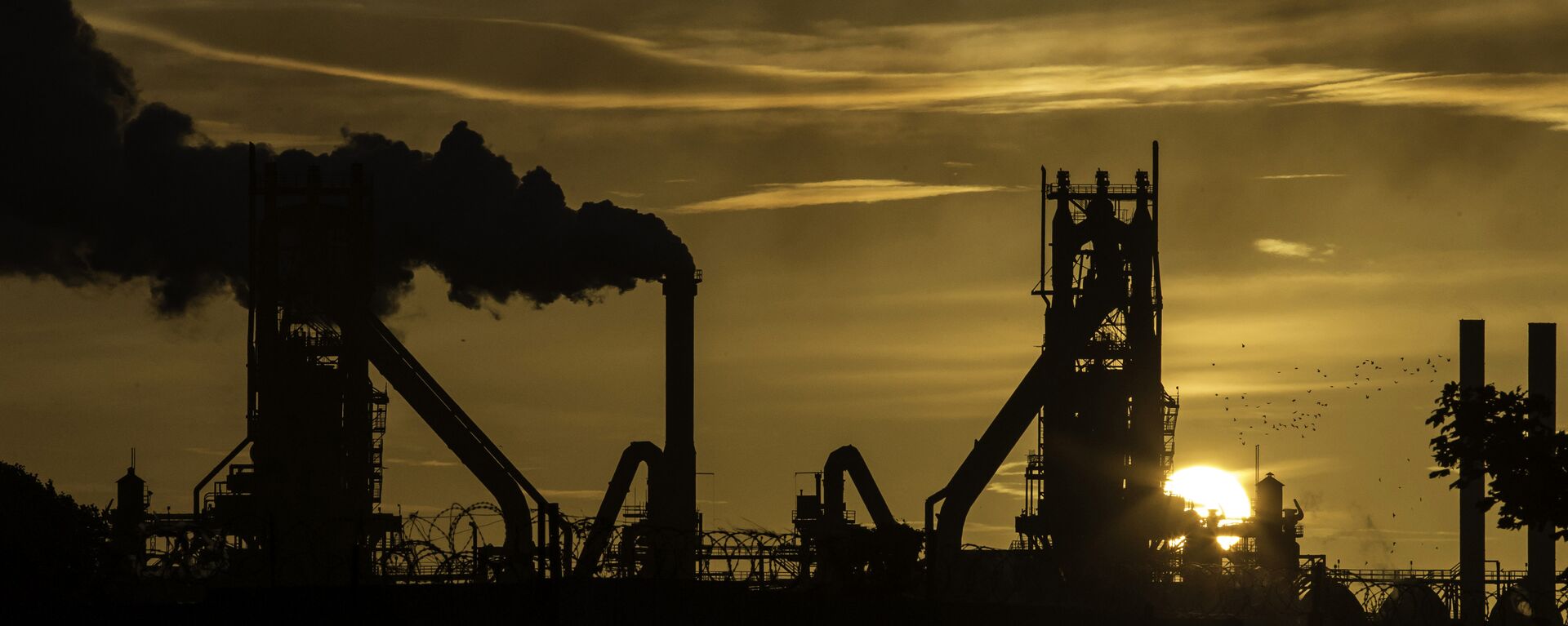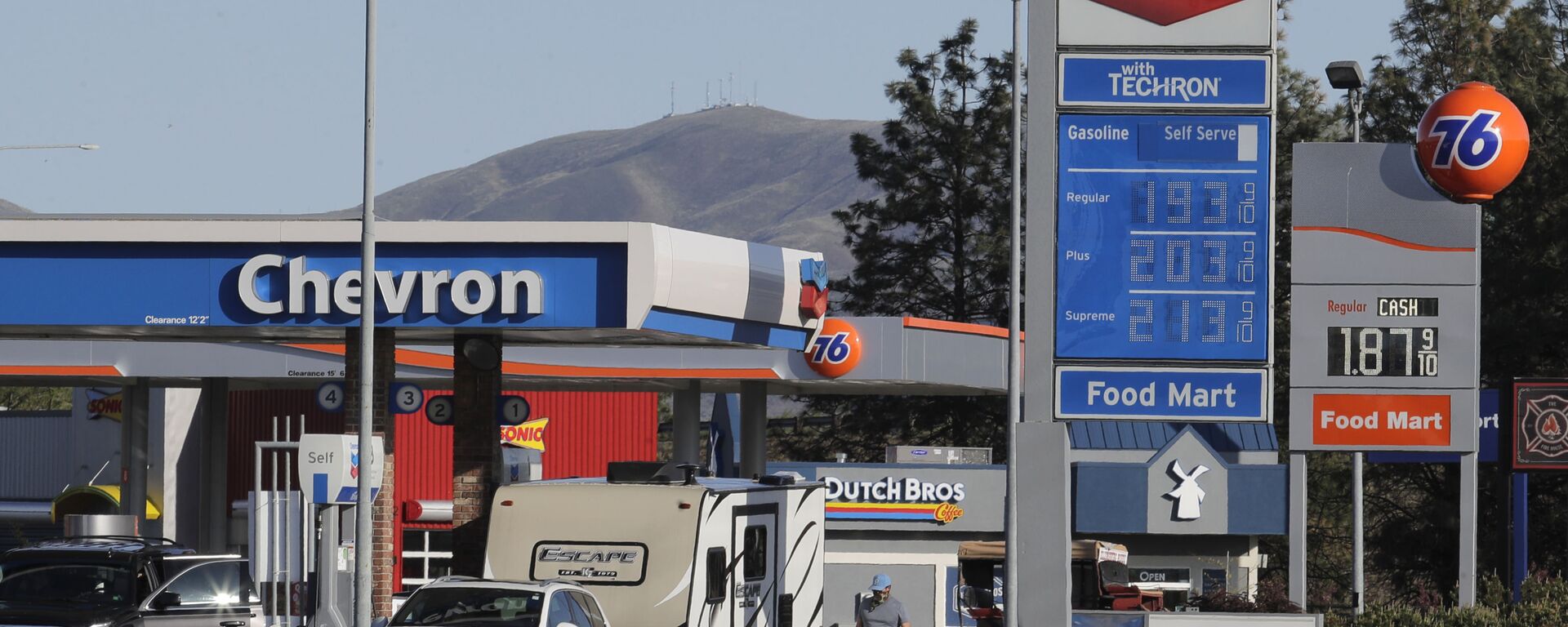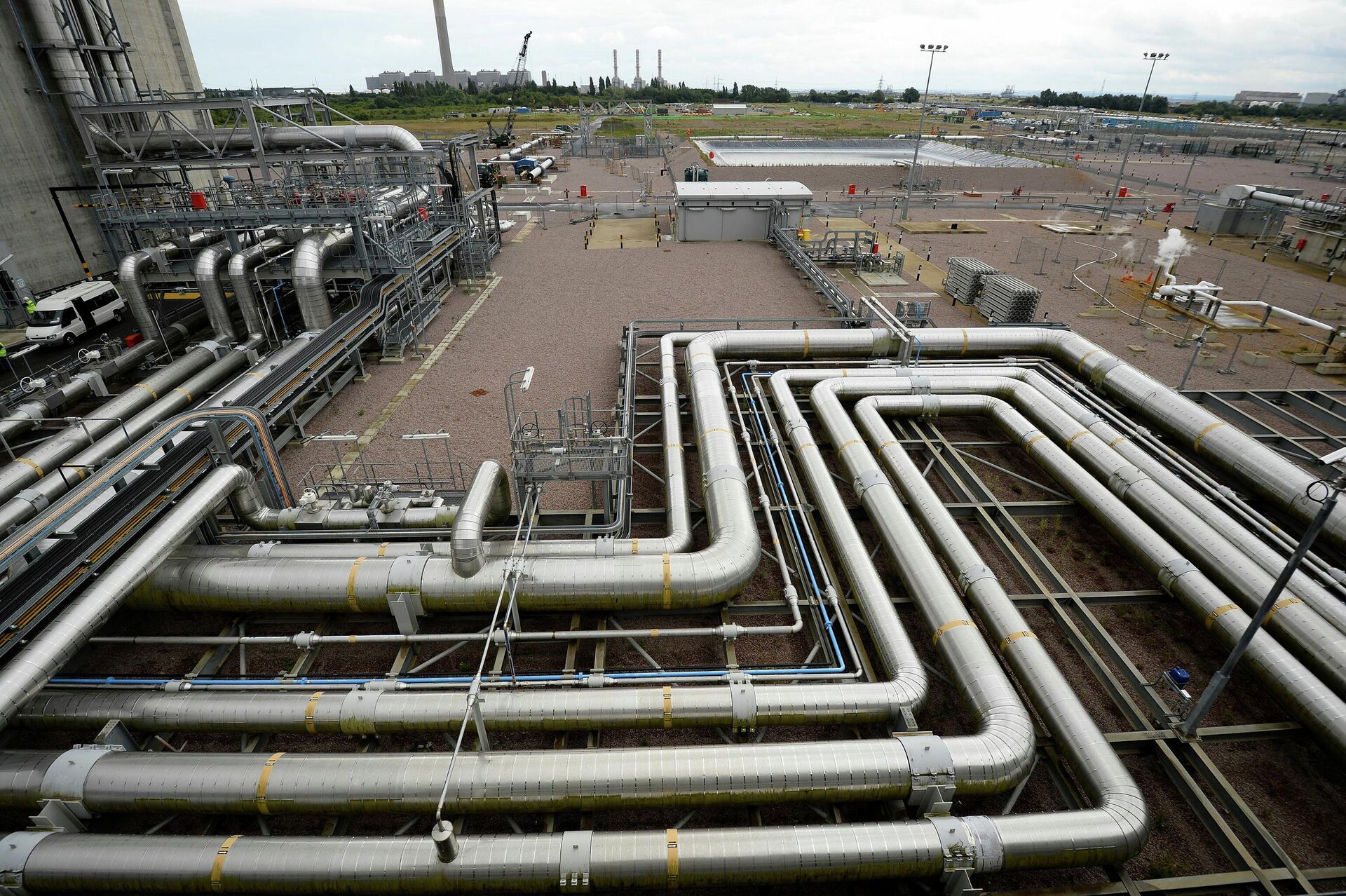https://sputnikglobe.com/20211227/uk-energy-sector-approaching-2008-financial-crisis-proportions-ceo-warns-1091832039.html
UK Energy Sector Approaching 2008 Financial Crisis Proportions, CEO Warns
UK Energy Sector Approaching 2008 Financial Crisis Proportions, CEO Warns
Sputnik International
Dozens of small and medium-sized utilities companies in the UK have gone belly up in recent months amid skyrocketing wholesale gas prices. The price jump has... 27.12.2021, Sputnik International
2021-12-27T11:03+0000
2021-12-27T11:03+0000
2023-05-28T15:24+0000
energy
gas prices
energy companies
united kingdom (uk)
https://cdn1.img.sputnikglobe.com/img/105330/35/1053303507_0:180:1920:1260_1920x0_80_0_0_096e406b323e63f72dcfdc87f2fecee5.jpg
The crisis being weathered by the Britain’s energy companies is reaching 2008 financial crisis-level proportions, and is roughly equivalent to the period between the 2007 collapse of the UK’s Northern Rock Bank and the 2008 explosion of Lehman Brothers, Ovo Energy CEO Stephen Fitzpatrick has warned.Ovo Energy, the UK’s second largest energy supplier after British Gas, has about 4.5 million customers, and like other providers has faced immense financial strain due to energy price caps which prevent companies from passing on the entirety of the three digit hike in the cost of wholesale gas on to consumers. Since July, wholesale gas prices have jumped from an average of roughly a pound per therm to about 3 pounds 52 pence now.The government has approved raising the price cap in the spring, with the average bill for consumers expected to jump by over £700 pounds per year – or more than £60 extra each month, starting in 2022. But regulators and No. 10 are stuck between a rock and a hard place, with energy companies’ demands for further relief counterbalanced by fears of a backlash from consumers, most of whom are also potential voters.Fitzpatrick has joined executives from EDF, Good Energy and the Energy UK trade body in urging authorities to step in and do more to help energy companies, with business secretary Kwasi Kwarteng expected to hold discussions with energy company officials on reforming the energy market later Monday.“The way things are at the minute everybody’s losing, because the market structure as it is isn’t fit for purpose. We simply haven’t seen any action from the regulator or from the Government to address that,” the Ovo CEO said.The Johnson government has taken flak from business and industry leaders for taking a laissez-faire approach and saying that “it’s not the government’s job” to save companies from bankruptcy amid the gas price crunch.The price hikes have already caused at least 26 British energy companies to go out of business since August, with Fitzpatrick estimating that number to be “more than 30”. Among the large providers facing major trouble is Bulb, which went into administration last month. That company has over 1.7 million clients, accounting for about 6 percent of the entire market.Last week, Energy UK CEO Emma Pinchbeck warned that the sector doesn’t yet see a light at the end of the tunnel, and that consumers could be faced with bills up to 50 percent higher in 2022 unless the government intervenes.The UK and other European nations have been hit with a major energy crisis in recent months thanks to a perfect storm of factors. The longer and colder than usual spring of 2020-2021 has been blamed for depleting underground gas storage reserves across the region, with most countries inexplicably failing to top them up in the summer and autumn months, potentially in hopes of finding a bargain on gas through dependence on short-term contracts. Fierce competition for gas between Europe and Asia, the US-led effort to torpedo a new Russian gas pipeline to Europe, and poorer than expected returns on new wind and solar power infrastructure, have also been blamed for the crunch.Some countries, particularly the United States, have blamed Russia for the current situation, claiming that Moscow has been deliberately shorting Europe, either for financial or geopolitical purposes. Gazprom has dismissed these claims, pointing to its continued readiness to pen new long-term contracts, and to the double digit bump in Russian gas deliveries to Europe in 2021. In October, President Putin said that while Russia has made good on its all its obligations on gas deliveries, Europe’s US allies have actually reduced their LNG deliveries to the region this year, perhaps in search of other, more lucrative markets.
https://sputnikglobe.com/20211014/uks-chancellor-says-not-governments-job-to-save-businesses-facing-bankruptcy-amid-gas-crunch-1089917789.html
https://sputnikglobe.com/20211223/uks-energy-bills-could-increase-by-50-in-2022--1091751858.html
united kingdom (uk)
Sputnik International
feedback@sputniknews.com
+74956456601
MIA „Rosiya Segodnya“
2021
News
en_EN
Sputnik International
feedback@sputniknews.com
+74956456601
MIA „Rosiya Segodnya“
Sputnik International
feedback@sputniknews.com
+74956456601
MIA „Rosiya Segodnya“
energy, gas prices, energy companies, united kingdom (uk)
energy, gas prices, energy companies, united kingdom (uk)
UK Energy Sector Approaching 2008 Financial Crisis Proportions, CEO Warns
11:03 GMT 27.12.2021 (Updated: 15:24 GMT 28.05.2023) Dozens of small and medium-sized utilities companies in the UK have gone belly up in recent months amid skyrocketing wholesale gas prices. The price jump has come about thanks to a perfect storm of factors, ranging from unusually cold weather, to countries’ inexplicable failure to stock up on gas supplies in the summer months.
The crisis being weathered by the Britain’s energy companies is reaching 2008 financial crisis-level proportions, and is roughly equivalent to the period between the 2007 collapse of the UK’s Northern Rock Bank and the 2008 explosion of Lehman Brothers, Ovo Energy CEO Stephen Fitzpatrick has warned.
“I think it’s a likely scenario that there’ll be more market failure,” Fitzpatrick
told The Telegraph in an interview. “I don’t think we’re at the end of the energy crisis right now,” the executive added.
Ovo Energy, the UK’s second largest energy supplier after British Gas, has about 4.5 million customers, and like other providers has faced immense financial strain due to energy price caps which prevent companies from passing on the entirety of the three digit hike in the cost of wholesale gas on to consumers. Since July, wholesale gas prices have jumped from an average of roughly a pound per therm to about 3 pounds 52 pence now.
The government has approved raising the price cap in the spring, with the average bill for consumers expected to jump by over £700 pounds per year – or more than £60 extra each month, starting in 2022. But regulators and No. 10 are stuck between a rock and a hard place, with energy companies’ demands for further relief counterbalanced by fears of a backlash from consumers, most of whom are also potential voters.
Fitzpatrick has joined executives from EDF, Good Energy and the Energy UK trade body in urging authorities to step in and do more to help energy companies, with business secretary Kwasi Kwarteng expected to hold discussions with energy company officials on reforming the energy market later Monday.
“The way things are at the minute everybody’s losing, because the market structure as it is isn’t fit for purpose. We simply haven’t seen any action from the regulator or from the Government to address that,” the Ovo CEO said.
“I think they accept there’s a problem, they’ve just been really slow in finding a solution. And I think we really do have a short period of time [to] fix it,” he warned.
The Johnson government has taken flak from business and industry leaders for taking a laissez-faire approach and saying that “it’s not the government’s job” to save companies from bankruptcy amid the gas price crunch.

14 October 2021, 11:09 GMT
The price hikes have already caused at least 26 British energy companies to go out of business since August, with Fitzpatrick estimating that number to be “more than 30”. Among the large providers facing major trouble is Bulb, which
went into administration last month. That company has over 1.7 million clients, accounting for about 6 percent of the entire market.
Last week, Energy UK CEO Emma Pinchbeck
warned that the sector doesn’t yet see a light at the end of the tunnel, and that consumers could be faced with bills up to 50 percent higher in 2022 unless the government intervenes.

23 December 2021, 13:54 GMT
The UK and other European nations have been hit with a major energy crisis in recent months thanks to a perfect storm of factors. The longer and colder than usual spring of 2020-2021 has been blamed for depleting underground gas storage reserves across the region, with most countries inexplicably failing to top them up in the summer and autumn months, potentially in hopes of finding a bargain on gas through dependence on short-term contracts. Fierce competition for gas between Europe and Asia, the US-led effort to torpedo a new Russian gas pipeline to Europe, and poorer than expected returns on new wind and solar power infrastructure, have also been blamed for the crunch.
Some countries, particularly the United States, have
blamed Russia for the current situation, claiming that Moscow has been deliberately shorting Europe, either for financial or geopolitical purposes. Gazprom
has dismissed these claims, pointing to its continued readiness to pen new long-term contracts, and to the double digit bump in Russian gas deliveries to Europe in 2021. In October, President Putin said that while Russia has made good on its all its obligations on gas deliveries, Europe’s US allies have
actually reduced their LNG deliveries to the region this year, perhaps in search of other, more lucrative markets.






